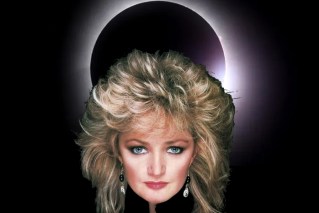Moments that changed music forever

(Note: readers viewing this on mobile devices may not be able to access Youtube videos)
With the recent surprise release of Beyoncé’s ‘visual’ album, one she plonked into everyone’s lap with no pre-release hype, the world exploded in a collective howl of ‘OMG! That Beyoncé can do anything!’
Yes, it really seems she can.
It may be hard for other artists to emulate the feat, but by having not a speck of marketing behind it, Beyoncé has shown it’s still possible to shift a million (or thereabouts) albums in a lazy weekend without pumping millions into marketing or embarking on soul-destroying press junkets.
But she’s not the only child of destiny to turn the music world on its head with a dose of daring or pure talent. History is littered with many artists who blazed a trail of glory behind them, leaving others to pick up their jaws from the ground.
Likewise, there have been events that have similarly shaped the music world. Let’s take a look at the moments in music history that we can never look back from.
Note: Apologies in advance to Miley fans, but the Twerk Heard Around The World does not qualify.
1960: The Beatles – The original boy band
They may have been in their late teens when they began gigging around the world, but The Beatles had fans more devoted than any Backstreet Boys or One Direction fan club could ever hope for. These lads from Liverpool were truly the original boy band.
So passionate were their legions of followers, that at some points during concerts the band couldn’t hear their instruments or singing over the tonsil-wrenching screams of the audience. The band would even stop playing as a joke to see if anyone would notice, which they didn’t. Hence the term Beatlemania was coined. Step aside, Bieber. The Beatles had this game sewn up decades before you were born.
1962: Phil Spector’s ‘Wall of Sound’
No list of historical achievements is complete without mentioning music producer Phil Spector’s ‘Wall Of Sound’ technique of production. Present on many of Spector’s recordings, as witnessed on songs like Be My Baby, by the Ronettes, the style would influence many pop and rock acts from the era, like the Beach Boy’s Good Vibrations.
Interestingly, a number of recent rock bands are turning to Spector’s techniques for inspiration, giving the style an aural rebirthing for a modern age.
1965: Dylan does electric
Folk icon and flower power poster boy, Bob Dylan, divides fans and alienates music critics upon the release of his fifth studio album, Bringing It All Back Home; with one side of the LP performed entirely on electric instruments.
Folk music purists decried his move to electric, declaring Dylan a traitor to the movement. Unknowingly, the act embraces an audience previously uninterested in his folk music stylings, proving an artist is bound not by the expectations of their fans and critics, but by their own imagination.
1970: Black Sabbath pioneer heavy metal
With the release of their debut, self-titled album in 1970, Black Sabbath is credited widely with the creation of heavy metal music. By abandoning the blues roots that defined many hard rock bands of the era (Led Zeppelin, AC/DC, Queen et al), Sabbath carved a trench into the darkest recesses of the music landscape, beckoning others to follow them into the abyss.
1972: Ziggy Stardust and the art of androgyny
David Bowie has contributed many memorable moments to our collective memory, but none more striking than as Ziggy Stardust. Decked in glorious sequined jumpsuits or parading about in epic shoulder pads and glitter paint, Ziggy taught a generation of music lovers that it was ok, if not your duty, to be yourself.
Ziggy’s music spoke to people. It kindled fires of passion, broke down racial and sexual barriers, and urged us to rebel. Not many artists have come close to this phenomenon since then.
1980: The murder Of John Lennon
At 10.50pm, on December 8th, 1980, the music changed forever. John Lennon was killed outside his New York apartment, shot in the back four times, by a fan angered by Lennon for stating The Beatles were “more popular than Jesus”.
In his last interview before his death, Lennon declared that, “the world has changed”. His passing was another sad reminder that even our heroes are only human.
1981: I want my MTV
Like it or not, MTV set a high bar when it began broadcasting music videos in 1981. It was a beacon to youth culture, one that created a blueprint no other music TV channel has come close to emulating with the same sense of anarchy and balls-to-the-wall passion. Quite simply, it changed the way we consumed music.
While you’re more likely to switch it on these days and find faux-reality TV shows than an abundance of music videos, the legacy of what the station once was lives on.
1983: The Moonwalk
Never has there been a dance move more popular, more defining, and executed in more school yards across the globe, than the moonwalk. While in existence in various forms beforehand, it was popularised in 1983, when King of Pop, Michael Jackson, performed the move on Motown 25: Yesterday, Today, Forever – a TV special celebrating Motown’s 25-year milestone.
It has since become a dance move that defined the old and new millennium, spawning innumerable tributes throughout pop culture. No doubt about it, MJ would be proud.
1990: Rave on
By 1990, electronic music had been around for nearly 100 years (yes, from its earliest guise). But it was around this time that developments in technology, media and shifts in music culture came together to influence the mainstream music-listening public and set the tone for the future of electronic dance music.
Disco had been an international sensation, but had already given way to the increased use of synthesiers and drum machines that would grow to dominate many modern compositions.
At the same time, underground warehouse parties and raves – which had been popular since the late ‘70s – gave birth to innumerable DJs, who would go on to leave their stamp on the genre, as well as its many sub-genres.
1999: Napster – The birth of peer-to-peer file sharing
When he launched file-sharing service, Napster, in 1999, Sean Parker set the world on fire. Aimed at sharing mp3 music files, the freedom inherent in the act of simply clicking a link and downloading a single track or album would grow to change, and challenge, all notions of ownership and copyright.
2001: Enter the iPod
While it may have taken a few years to really sink its teeth into our collective psyche, the iPod would grow swiftly to become the portable music device du jour for the noughties, in doing so establishing expectations in the consumer’s mind across the industry.
Early models may have been Mac-only, but the iPod gave us an abundance of music and a freedom to take it wherever we wanted. Long commutes, peak hour trains and parties at your Euro-trance loving friend’s house suddenly became way more tolerably now you could BYO music.
2007: Radiohead invite you to pay-what-you-want
In 2007, Radiohead flipped the mainstream music industry the bird when they released their pay-what-you-want LP, In Rainbows. In a move that has left record company executives scratching their heads to this day, the band invited purchasers to pay whatever they felt appropriate for the album, which they could then download from the band’s website.
Some people chose to pay next to nothing, but many also paid normal retail price, proving to the industry at large there was legitimacy to Radiohead’s endeavour to independently digitally distribute their material.
2013: Be-Be-Beyoncé
Beyoncé releases BEYONCÉ with no marketing effort, promptly blows minds and sells over a million copies in the space of a week.
Of course, this list is by no means exhaustive, so let us know below what you think were the defining moments that changed music forever.








